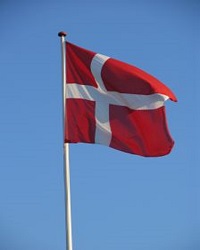The healthcare system in Denmark rests on the foundation of equal access for all citizens. Public healthcare is comprehensive and includes doctors, specialists, hospitals, home care, pediatric care and dental care. There are also preventive health care programs in place that are run by the municipalities. The municipalities issue health insurance cards to citizens. The five regions of the country manage the hospitals and psychiatric care facilities in their respective areas.
Public health insurance
You can access Denmark’s public healthcare system by registering in the country, and obtaining your CPR number, which is your personal ID number, and your yellow health insurance card.This will provide access to all public health services, hospital care and other medical help. You must have the yellow insurance card with you when you visit your general practitioner or dentist, or go to receive healthcare at a hospital or emergency ward. The card will bear your details and CPR number and also the contact details of your general practitioner. Once you register, your municipality will automatically send you the card. Your card also covers treatment received in case of illness or accident while travelling in Europe, provided that the trip is for pleasure and for the duration of less than a month. However, public health insurance may not cover all medical needs and for this reason, many take out private health insurance too.
Doctors
Upon registering yourself with the municipality, you can select the GP of your choice. The doctor’s contact information will be mentioned on your health insurance card and you can access public health services through your GP and also receive referrals for further examination or treatment by specialists or at a hospital.
Hospitals
The healthcare system in Denmark allows you to choose the hospital at which you prefer to receive treatment. But all hospitals do not have specialized treatment facilities. Your GP will be able to help you with the choices available.
Emergencies
The number for emergencies or immediate medical treatment in Denmark is 112. Although the introductory message is in Danish, the emergency call center staff does speak English. Once details of the nature of the emergency are provided, an ambulance or other emergency services will be sent immediately. There is also an emergency doctor service number, 1813, which provides emergency care 24/7 on weekends, public holidays and after 4pm on weekdays. Upon calling this number, you will be asked to provide the patient personal identification number and some details about the nature of the condition. The on-duty doctor will then decide if a doctor should visit the home or if the patient needs to go to the hospital for emergency treatment.
Medicines
Certain medicines are available over-the-counter, while others require a prescription. Those that require a doctor’s prescription can only be purchased at a pharmacy or apotek. These may be more expensive and therefore the public health service subsidizes most of them. Consumers are reimbursed when they spend more than DKK 850 a year on these medicines. Other medicines are available also at grocery shops, supermarkets and even gas stations.
Pharmacies
Pharmacies in Denmark remain open from 9.30am to 5.30pm on weekdays. On Saturdays, they usually shut at 12noon or 2pm. There are some pharmacies that are open around the clock. The National Board of Health ensures that some pharmacies remain operational 24/7. There are around 11 such pharmacies in the country. All pharmacies bear a sign on the window specifying their timings and also referring customers to the nearest open pharmacy.
Children’s medical care
The Danish government ensures that all children between the ages of 5 weeks and 9 years receive preventive health examinations that help to monitor the child’s development and well-being. These are conducted by the GP that the family has selected. All children also receive vaccinations for different diseases such as polio, diphtheria, measles, tetanus and meningitis.
Dental care
Children from 0 to 18 years are also provided free dental health care through regular checkups conducted at half-yearly intervals. Dental check-ups are also carried out in schools.
Individuals above the age of 18 years must choose their own private dentist and have to pay for check-ups and treatment. However, the state covers nearly 40% of the costs.

